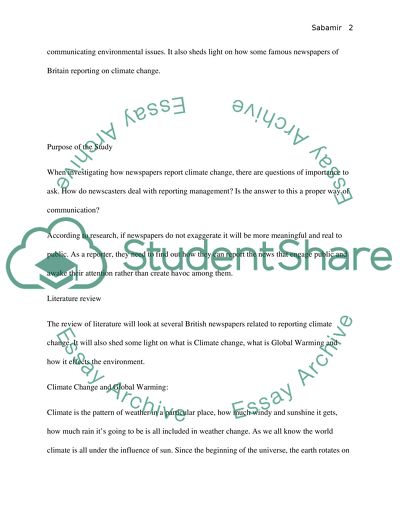Cite this document
(“Media Coverage of Climate Change Essay Example | Topics and Well Written Essays - 2750 words”, n.d.)
Retrieved from https://studentshare.org/science/1509004-media-coverage-of-climate-change
Retrieved from https://studentshare.org/science/1509004-media-coverage-of-climate-change
(Media Coverage of Climate Change Essay Example | Topics and Well Written Essays - 2750 Words)
https://studentshare.org/science/1509004-media-coverage-of-climate-change.
https://studentshare.org/science/1509004-media-coverage-of-climate-change.
“Media Coverage of Climate Change Essay Example | Topics and Well Written Essays - 2750 Words”, n.d. https://studentshare.org/science/1509004-media-coverage-of-climate-change.


